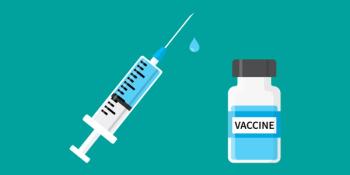
Don’t overlook oral health in young children
Pediatricians should include oral health assessment, maintenance, and anticipatory guidance in their care of young children, a new policy statement from the American Academy of Pediatrics recommends.
Pediatricians should include
The policy statement offers a number of specific recommendations, including that pediatricians:
- Perform a periodic dental health risk assessment for all children.
- Integrate anticipatory guidance on oral health into patient counseling.
- Advise caregivers and patients to reduce exposure to sugars in foods and drinks.
- Encourage caregivers to brush children’s teeth as soon as they erupt with fluoride toothpaste (a rice-grain-sized amount initially, then a pea-sized amount at 3 years of age) and monitor brushing until age 8 years.
- Maintain collaborative relationships with local dentists and recommend that every child have a dental home by 1 year of age.
For decisions about fluoride administration and supplementation, pediatricians can refer to the AAP
To get weekly clinical advice for today's pediatrician,
Newsletter
Access practical, evidence-based guidance to support better care for our youngest patients. Join our email list for the latest clinical updates.








